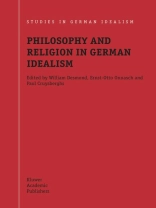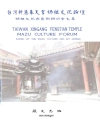This book contains the selected proceedings of a conference on Religion in German Idealism which took place in Nij- gen (Netherlands) in January 2000. The conference was – ganized by the Centre of German Idealism, which co-or- nates the research on classical German philosophy in the Netherlands and in Belgium. Generous support of the Dutch Organisation for Scientific Research (NWO) has made this conference possible. A few months after the conference Ludwig died, and this circumstance unexpectedly delayed efforts to bring the proceedings of the conference to p- lished form. We are now happy to present those proce- ings, dedicated to the memory of the founding father of the Centre. It was a great joy to work with Ludwig; it was an even greater joy to be reckoned amongst his friends. It was part of Ludwig’s distinctive charisma that he was able to combine friendship together with collaboration in philo- phical and scholarly work. William Desmond Ernst-Otto Onnasch Paul Cruysberghs ix INTRODUCTION WILLIAM DESMOND, ERNST-OTTO ONNASCHand PAUL CRUYSBERGHS 1 The studies in this book testify to the intimate relation of philosophy and religion in German idealism, a relation not also devoid of tensions, and indeed conflicts. Idealism gave expression to a certain affirmation of the autonomy of p- losophical reason, but this autonomy was one that tried to take into account the importance of religion. Sometimes the results of this claim to autonomy moved towards criticism of religion.
Mục lục
Philosophy of Religion After the Death of God.- Kant on Religion in the Role of Moral Schematism.- “Wishful Thinking” Concerning Fichte’s Interpretation of the Postulates of Reason in His Versuch Einer Kritik Aller Offenbarung (1792).- The Unsatisfied Enlightenment Faith and Pure Insight in Hegel’s Phenomenology of Spirit.- Religion, Morality and Forgiveness in Hegel’s Philosophy.- The Finite Does Not Hinder Hegel’s Philosophy of Christian Religion Placed Against the Backdrop of Kant’s Theory of the Sublime.- Hegel on Reason, Faith and Knowledge.- Religion and the Poverty of Philosophy.












